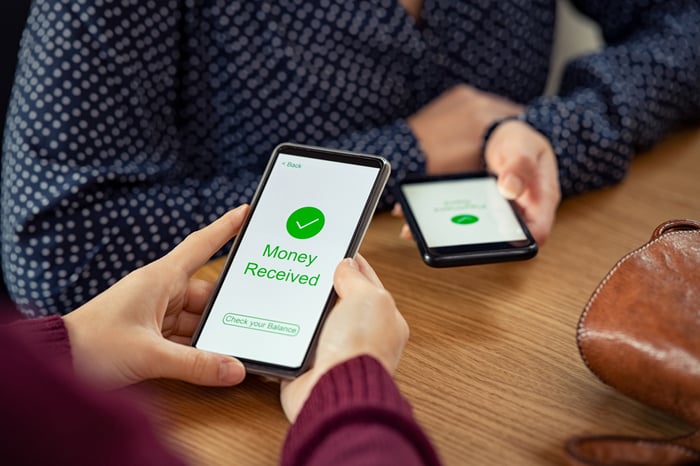For nearly 60 years, Berkshire Hathaway (BRK.A -0.76%) (BRK.B -0.69%) CEO Warren Buffett has been making his company's shareholders notably richer. Since taking over as CEO in the mid-1960s, the "Oracle of Omaha" has overseen just shy of a 4,500,000% aggregate return in his company's Class A shares (BRK.A), as of the closing bell on Jan. 19, 2024.
Although Warren Buffett is fallible just like every other investor, he has a knack for finding value hiding in plain sight. It's why professional and everyday investors alike have attempted to mirror his investments for decades.

Berkshire Hathaway CEO Warren Buffett. Image source: The Motley Fool.
Berkshire Hathaway's 13F doesn't tell the full story
The good news on this front is that Berkshire Hathaway is required to file Form 13F with the Securities and Exchange Commission on a quarterly basis. A 13F provides a detailed snapshot of what money managers with at least $100 million in assets under management purchased and sold in the most recent quarter.
What Berkshire's 13Fs have taught investors over the past year and change is that the Oracle of Omaha is struggling to find good deals. Over the previous four quarters, ended in September 2023, Buffett and his investing "lieutenants" Ted Weschler and Todd Combs have been net sellers of equities.
Something else that's noteworthy about Berkshire's quarterly 13Fs is that they fail to tell the complete story.
In 1998, Buffett's company acquired General Re for $22 billion. Although the purpose of this acquisition was for Berkshire to get its hands on General Re's reinsurance operations, the company also owned a specialty investment firm at the time, New England Asset Management (NEAM). When Berkshire completed its General Re buyout, it became the owner of NEAM.
To be crystal clear, Warren Buffett isn't playing a role in the day-to-day investment activity of NEAM's roughly $610 million investment portfolio. Nevertheless, any security held by New England Asset Management is, ultimately, part of Berkshire Hathaway. This makes NEAM, which is also required to file quarterly 13Fs, Warren Buffett's "secret" portfolio.
Though New England Asset Management holds stakes in 111 various securities, including common stock, preferred stock, and exchange-traded funds, one of these 111 holdings stands out as a screaming buy in 2024.

Image source: Getty Images.
The unquestioned top stock to buy in Warren Buffett's secret portfolio
Despite having $610 million invested across dozens of profitable, time-tested businesses, fintech industry leader PayPal Holdings (PYPL 2.90%) may be the smartest buy in the new year.
Shares of PayPal have declined by around 80% from their all-time high, which was achieved during the summer of 2021. Growing competition in the digital payment arena has been the primary concern of skeptics. With more brand-name businesses getting involved in digital payments, there's the potential for PayPal's margins to erode.
Historically high inflation has been another significant headwind for PayPal. Higher prices for goods and services threatened to sap the discretionary purchasing power of low earners. Since PayPal is primarily driven by fees, anything that could reduce the number of transactions on its platform would be bad news.
While both of these headwinds are genuine concerns, they're not what I'd consider game changers for PayPal, as evidenced by the underlying data.
The first thing for current and prospective investors to consider is the growth runway for digital payments. According to projections released in May 2023 by researchers at Boston Consulting Group, global fintech revenue is expected to grow by a factor of six, to $1.5 trillion in 2030.
Regardless of whether or not this estimate is a bit overzealous, it demonstrates how early in the growth cycle we still are for digital payment adoption. There's room for multiple companies to succeed, with PayPal continuing to lead the way.
PayPal's key performance indicators (KPIs) also suggest that a lengthy growth runway lies ahead. Total payment volume (TPV) traversing its network has consistently grown by a low double-digit percentage, sans currency movements, over the past couple of years. Even with historically high inflation and increased competition, TPV has sustained a double-digit, constant-currency growth rate. During long-winded periods of expansion, TPV may reapproach a 20% sustained growth rate as digital payment adoption increases.
What I'd argue is even more important, in terms of KPIs, is PayPal's ever-improving user engagement. At the end of 2020, the average active PayPal user was completing 40.9 transactions over the trailing-12-month (TTM) period. As of the end of September 2023, active accounts were averaging 56.6 transactions over the TTM.
As noted, PayPal is a transaction-driven operating model. As existing users become more engaged, they're going to help drive gross profit even higher.
PYPL Shares Outstanding data by YCharts.
Something else for investors to consider is the hiring of Alex Chriss as CEO. Chriss took over in late September after leading Intuit's Small Business segment for more than four years. Chriss has a keen understanding for how PayPal can appeal to small businesses, and he's not afraid to reduce expenses and bolster the company's operating margin.
To add to the above, PayPal's board has been aggressively rewarding its shareholders with stock buybacks. The company approved a $15 billion share repurchase program in 2022, which should provide a lift to the company's earnings per share.
Last but not least, PayPal's stock is historically cheap. Shares are currently trading for 12 times forward-year earnings, despite an expected annualized earnings growth rate of 18% over the next five years. Patient investors should be handsomely rewarded by this industry-leading holding in Warren Buffett's secret portfolio.






